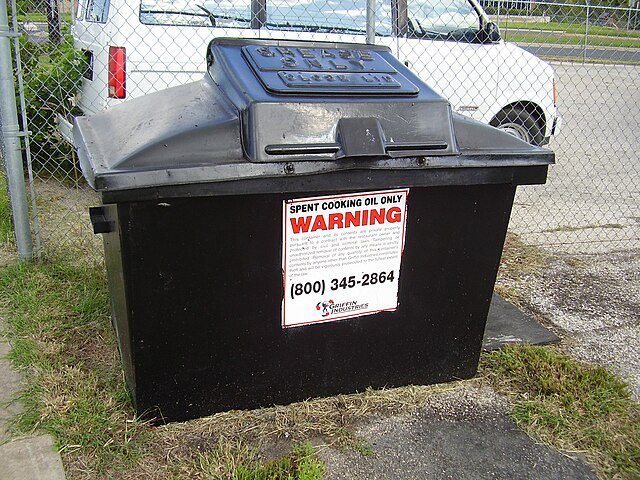Cooking oil theft is no laughing matter
By Aidan Johnson
Two men were arrested on June 5 by Suffolk County police for stealing cooking oil from three restaurants in the Patchogue-Medford area.
While the idea of people stealing used cooking oil may garner some confused looks and light chuckles, the ramifications of the crime are a lot bigger than expected.
Dimitris Assanis, an assistant professor in the Department of Mechanical Engineering at Stony Brook University, spoke about the greater use of cooking oil.
“There’s these cascading layers of what you can use oil products for, so in the cooking oil side, these are basically oil that comes from the fryers. That’s probably the largest use,” Assanis said.
Depending on the quality and type of oil, along with the price point of the restaurant, according to Assanis, factor in how often the oil is changed. More expensive restaurants may change their oil daily or every few days, while a mid- to lower-tier restaurant may change its oil around once every week or two.
There’s also value in converting this oil into fuel oil by turning it into biodiesel, a net-zero or low-carbon fuel that is very similar to diesel. If done in a careful manner, the oil can be turned into high-quality biodiesel that can then be used as home heating oil or can be put in a car, Assanis said.
In the past, restaurants would have to pay to dispose of their used oil. However, restaurants are able to have it disposed for free or even get paid for their used oil, especially since there’s a secondary use for it.
“The issue is now if someone is going in and stealing their oil, they were using that additional revenue probably to discount some of the cost of running the restaurant,” Assanis said. “And usually that cost that’s lost there gets passed on to the customer because they can’t offset it.”
Jeff Yasinski is co-owner of D&W Alternative Energy, a New Jersey company that collects and recycles used cooking oil from restaurants in New Jersey, Pennsylvania and Delaware. For over a decade, D&W has had to struggle with cooking oil theft. Currently, Yasinski estimates that 30-35% of their cooking oil is being stolen per week.
Even with the outdoor cooking oil containers that restaurants use becoming more secure, thieves still find ways to steal it, usually with the help of oxyacetylene torches and angle grinders that leave the containers destroyed.
“We’ve personally reached out to the FBI, the State Commission of Investigation, pretty much every local police department in the New Jersey, Pennsylvania area,” Yasinski said. “Occasionally they’ll catch one little cargo van with two guys in it, but you got to cut the head off the snake, not the [tail],” he added.
The theft is fueled by the people who are willing to buy the stolen used oil, and according to Yasinski, it is no secret who they are.
“There’s three big outfits in New Jersey that [are] buying a lot of stolen oil, and pretty much all of that stolen oil that’s aggregated at those three places then gets sold on through one specific trading house,” Yasinski explained.
“That one specific trading house supplies one of the very biggest renewable diesel producers in the world, and they know it. Everybody down the chain knows it. It’s frustrating,” he further elaborated.
Yasinski suggests that restaurants move the oil containers inside, where thieves are less likely to steal it. He also recommends familiarizing yourself with the service provider.
“I can’t tell you how many times I’ve gone to a restaurant trying to pick up a new account, and they thought that they were being serviced by whoever’s container was out there, but in reality, their oil has just been stolen over and over and over again,” he said.
“And the company who dropped that container five years ago hasn’t been there in five years, because every time they go there, there’s no oil there,” Yasinski added.
It’s important to make sure that the service provider being used is legitimate by checking information such as the Department of Transportation numbers on the truck. Otherwise, instead of just the oil being taken, your money can be going along with it.







